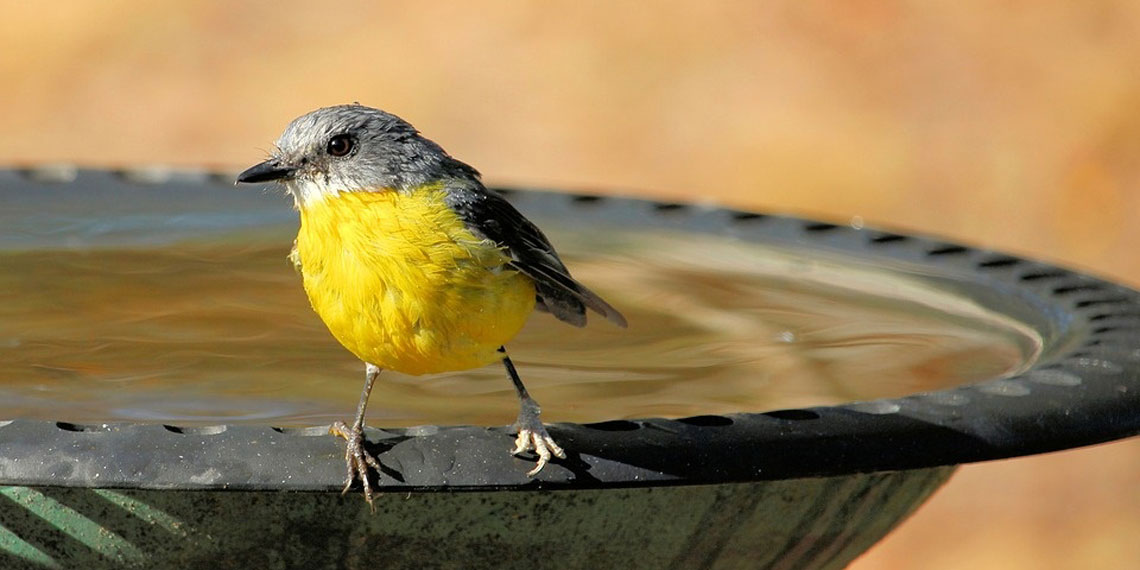Feeding birds

Many people enjoy feeding birds in their garden or balcony, however this can create problems with our feathered friends. Please be aware of the potential problems this can cause and the other options available that will help support our local wildlife.
Feeding birds the wrong types of food (eg. processed food such as bread) can result in serious digestive problems, malnutrition and disease. Most birds already eat a balanced diet. If you’re looking for suitable food sources please follow the below guidelines:
Top tips
- Avoid feeding daily – if birds rely on humans for food it changes their normal feeding behaviour.
- Vary the time of day that you feed to prevent crowding and dependence.
- Change the type of feed to attract less successful urban birds.
- Daily cleanliness. Sweep up any left overs and spray with a mix of water and vinegar or wash with soap and water. Dry and then place new feed.
- Provide a snack. Not a meal. Just a little bit of food goes a long, long, way.
- Place feed stations out of reach of predators.
- Ensure bird seed is out of reach of cats and other wildlife.
- Cease feeding if it starts to attract large flocks (20+).
Check out Birdlife Australia's 'A Guide to feeding wild birds in Australia' for more information.
Suitable food
|
Food type
|
Birds
|
Tips
|
| Nectar mix (wet or dry) |
Honeyeaters, Parrots |
Spoils very quickly. Discard within a few hours. Quicker in hot weather. Avoid using this food if you cannot clean it up quickly. |
| Fruit |
Parrots, Pigeons/Doves, Bowerbirds |
Spoils quickly. Discard within half a day. Avoid putting out fruit if you cannot clean up after it quickly. |
| Mealworms and other insects |
Insect-eaters (Fantails, Willie Wagtails, Fair-wrens, Scrubwrens), Magpies, Butcherbirds, some Honeyeaters |
Available from pet supply stores live or freeze-dried. |
| Seed |
Parrots (Cockatoos, Galahs, Corellas, Rosellas), Finches, Pigeons/Doves |
Avoid large amounts of sunflower seeds (very fatty). Ensure seed stations are out of reach of kangaroos and wallabies. |
| Dog kibble, raw meat |
Magpies, Ravens/Crows, Butcherbirds, Currawongs, Kookaburras |
Consider the impact they may have by hunting smaller birds. Add a calcium supplement like Wombaroo Insectivore Mix. |
Sourced from Birdlife Australia
Disease
- Feeding can increase the amount of vermin to an area; DO NOT use rodenticides on your property as this can poison owls and other birds of prey.
- Bird seed left out in damp conditions can grow mould and cause disease in birds.
- High quantities of processed foods can cause sickness. Avoid mince meat and bread, especially for young birds.
Bird scaping
Plant local flowering native plants that provide balanced nutrition for a diversity of bird species. A garden that provides natural food for birds such as one with native grasses to provide seed, mulch to encourage insects, and small-flowering locally native shrubs to feed honeyeaters, is much better for our whole bird community than one that feeds only a few potentially problem birds.
For more information please contact our Natural Areas team on 9424 0000.